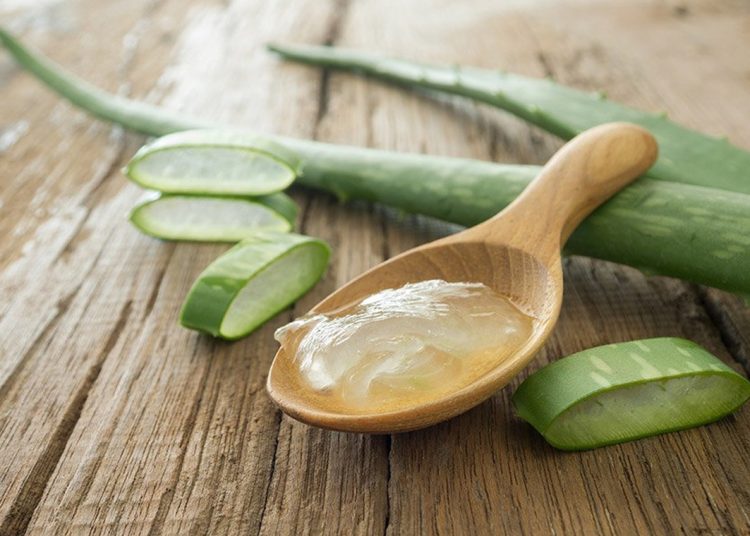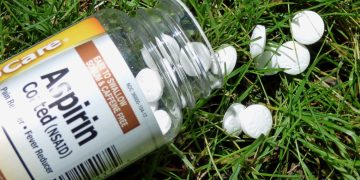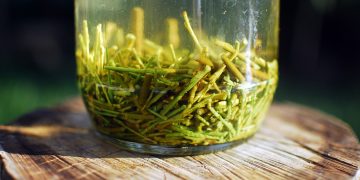When it comes to plant propagation, particularly for growing new roots on cuttings, gardeners often turn to rooting hormones to help stimulate root development. These commercial products contain synthetic or natural compounds that encourage root growth, improving the success rate of plant cloning. However, many gardeners are curious about using natural alternatives like aloe vera gel. Can aloe vera gel serve as an effective rooting hormone? Let’s take a closer look at this idea.
What is Rooting Hormone?
Rooting hormone is typically a powder, gel, or liquid that contains specific compounds to encourage roots to develop on plant cuttings. The most common active ingredient in synthetic rooting hormones is indole-3-butyric acid (IBA), a plant hormone that promotes root growth. However, some gardeners prefer natural alternatives due to their availability, cost, or preference for organic gardening practices.
Aloe Vera Gel: A Natural Alternative?
Aloe vera is a widely-known plant valued for its medicinal and skincare benefits. Aloe vera gel, which comes from the plant's thick leaves, contains numerous compounds, including vitamins, minerals, amino acids, and enzymes. One of its most notable properties is its ability to promote healing, which leads many gardeners to wonder if it can also stimulate root growth in plant cuttings.
The Science Behind Aloe Vera Gel and Rooting
Aloe vera gel contains auxins, which are plant hormones that play a crucial role in cell growth and the formation of roots. While synthetic rooting hormones like IBA are more potent and targeted for propagation, the auxins found in aloe vera gel could potentially support the rooting process in plant cuttings. In fact, some studies suggest that aloe vera gel has mild rooting stimulant effects, possibly due to its content of auxins, salicylic acid, and other compounds that promote cell division and growth.
Benefits of Using Aloe Vera Gel for Rooting:
Natural and Non-Toxic: Aloe vera gel is a natural substance, making it an attractive choice for gardeners looking to avoid chemicals and synthetic products in their gardening practices. It’s also safe for most plants, unlike some commercially available rooting hormones that may not be suitable for all species.
Availability: Aloe vera is easy to grow in a garden or even as a houseplant, making the gel readily available at no extra cost once you have a mature plant.
Moisturizing and Healing Properties: Aloe vera gel is known for its ability to hydrate and promote tissue healing, which can benefit the cutting during the rooting process by providing a protective barrier against desiccation (drying out) and pathogens.
Mild Growth Stimulation: While not as potent as synthetic rooting hormones, aloe vera gel does contain beneficial compounds that can help stimulate root growth, particularly in more resilient plant species or when the cuttings are already well-prepared.
How to Use Aloe Vera Gel for Rooting:
Harvest the Gel: Cut a mature aloe vera leaf and squeeze out the gel. Be sure to use fresh gel, as it can lose potency over time once exposed to air.
Apply the Gel: Dip the cut end of the plant cutting into the aloe vera gel, ensuring the area that will form the roots is covered with the gel.
Plant the Cutting: After applying the gel, plant the cutting in moist, well-draining soil or another suitable medium. Be sure to keep the cutting in a warm, humid environment to encourage rooting.
Maintain Moisture: Aloe vera gel can also help retain moisture around the cutting. Mist the cutting lightly and keep the humidity high to encourage root formation.
Limitations of Aloe Vera Gel as a Rooting Hormone
While aloe vera gel has some beneficial properties, it’s important to note that it is not as powerful as synthetic rooting hormones. For plants that require more aggressive or specialized rooting stimulation, aloe vera gel may not produce the same results as commercial products. The success of aloe vera gel as a rooting hormone also depends on the type of plant being propagated, the health of the cutting, and environmental conditions.
Which Plants Can Benefit from Aloe Vera Gel?
Aloe vera gel can be effective for rooting many common houseplants and garden cuttings, such as:
- Herb cuttings (e.g., basil, rosemary, mint)
- Succulent cuttings (e.g., jade plants, aloe, echeveria)
- Flowering plants (e.g., geraniums, petunias)
- Vines and climbers (e.g., pothos, ivy)
However, for some species that are more difficult to root, such as woody shrubs or trees, a more potent rooting hormone may be needed for best results.
Conclusion
Aloe vera gel can indeed be used as a natural alternative to commercial rooting hormones, especially for those looking for an organic approach to plant propagation. While it may not be as effective as synthetic hormones, it offers a mild, safe, and readily available option for stimulating root growth in many plants. If you’re experimenting with cuttings or prefer natural gardening methods, giving aloe vera gel a try could be a worthwhile addition to your plant propagation toolkit.
For tougher-to-root plants or more aggressive rooting, you may still want to consider using a stronger, specialized rooting hormone. Nonetheless, aloe vera gel remains a promising and gentle option for gardeners looking to nurture their plants from cutting to root formation.
















